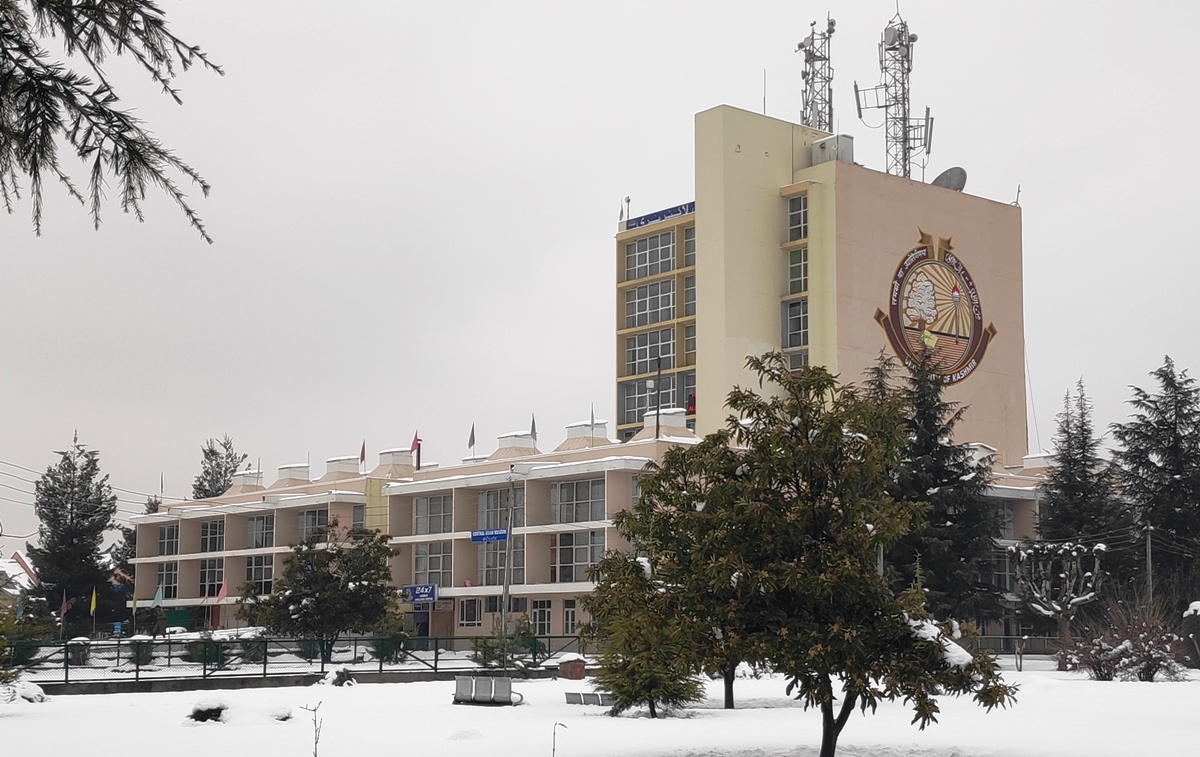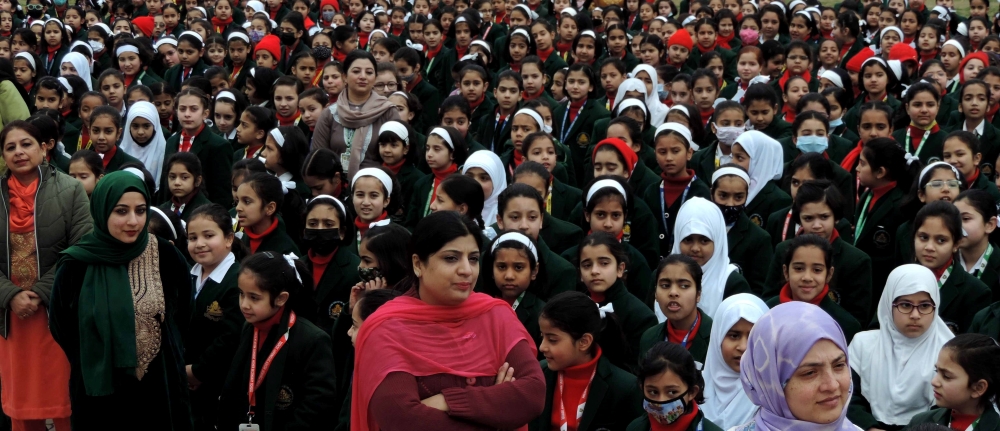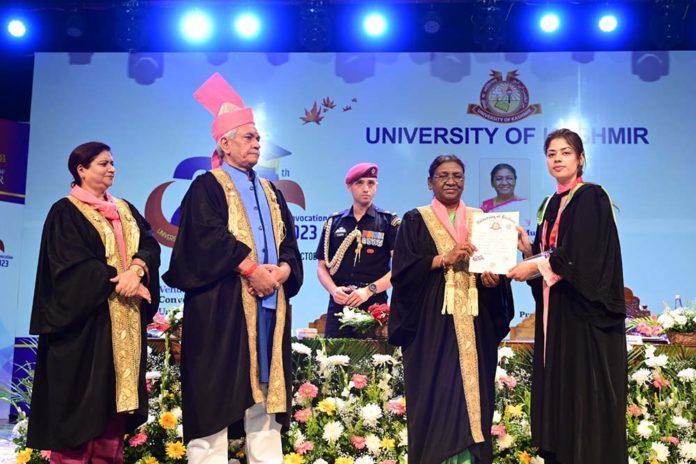by Bisma Shafi
The paradox is stark. Academic institutions, ideally sanctuaries of intellectual freedom, often devolve into arenas where self-interest and strategic manoeuvring take precedence over rigorous scholarship.

In the cutthroat world of contemporary academia, the web of workplace politics exerts a profound influence on an individual’s career trajectory, often eclipsing the erstwhile cornerstones of merit and diligence. This stark reality, borne out of systemic flaws, perpetuates a culture where favouritism, bias, and seniority frequently hold sway, casting a long shadow over the aspirations of many. As a result, navigating the treacherous landscape of academic politics becomes an unfortunate yet necessary rite of passage for those seeking to forge a successful career in this rarefied realm.
Favouritism, a pervasive and insidious phenomenon has long been entrenched in the fabric of academic and professional cultures. It is a practice where personal connections and relationships are prioritized over professional qualifications, leading to certain individuals receiving preferential treatment. This can create a corrosive work environment, where morale is eroded, and resentment simmers just below the surface among colleagues who feel marginalized.
Scholars and researchers who have invested considerable time and effort in honing their expertise may find themselves inexplicably overlooked for promotions, grants, or key projects. The reason? They do not possess the same level of rapport with decision-makers, who often wield significant influence. This not only undermines the principles of meritocracy but also creates a sense of disillusionment among those who feel their hard work and dedication are being disregarded.
The consequences of favouritism extend far beyond individual grievances, however. It can have a stifling effect on collaboration and growth, as the academic community begins to perceive that outcomes are predetermined based on personal relationships rather than merit. This can lead to a toxic atmosphere of disillusionment, where talented individuals feel compelled to seek alternative environments where their contributions are valued. Ultimately, this can result in a lamentable loss of high-quality talent and innovative ideas, to the detriment of the institution.

Bias, a pervasive and multifaceted issue, permeates the academic world, manifesting in various forms that can be both subtle and overt. Implicit biases, often rooted in deep-seated prejudices related to gender and race, can influence decision-making, while explicit favouritism, stemming from personal preferences, can also skew the selection and evaluation processes. These biases can have far-reaching consequences, depriving institutions of the rich diversity of thought and creativity that can only emerge from a truly equitable academic environment.
When opportunities are awarded based on personal bias rather than objective assessment, it creates a profound imbalance that systematically disadvantages certain groups, relegating them to the periphery of academic discourse. This can have a stifling effect on innovation, as academics may feel compelled to conform to existing norms rather than introducing groundbreaking ideas or challenging outdated practices. The result is a stagnation of knowledge, which is the very antithesis of academia’s core mission. As the pursuit of knowledge is hindered, the academic community is denied the benefits of diverse perspectives, ultimately undermining the very foundations of intellectual inquiry.
Seniority, a deeply ingrained factor in academia, significantly influences the dynamics at play within institutions. While experience undoubtedly brings valuable insights and expertise, an overreliance on seniority can have a stifling effect on young scholars eager to inject fresh perspectives and revolutionary ideas into the academic discourse. All too often, institutions prioritize tenure over innovation, perpetuating a culture where connections and longevity are afforded greater weight than talent, ambition, and groundbreaking research.
This seniority-based culture can create a profound disconnect between seasoned academics and early-career researchers, hindering meaningful collaboration and knowledge transfer. New scholars, looking to make their mark and contribute to their field, may quickly become disillusioned when their innovative ideas are consistently overshadowed by the status granted to those with years of experience.
As a result, the academic community misses the benefits of intergenerational dialogue, where established experts and emerging voices can engage in productive exchange. This not only undermines the development of young scholars but also stifles the evolution of ideas, ultimately diminishing the vibrancy of academic inquiry.

Amid academia’s tumultuous landscape, a jarring paradox persists in the entrenched culture of sycophancy. This pervasive phenomenon underscores the tension between intellectual curiosity and institutional pressures. The imperative to conform, appease superiors, and navigate the intricate web of academic politics often prompts scholars to prioritize sycophantic gestures over genuine intellectual pursuits.
This is particularly disconcerting in environments where the free exchange of ideas and critical thinking should thrive. The consequences are far-reaching: instead of cultivating vigorous debate and inquiry, such behaviours suppress creativity, fostering a culture of complacency and mediocrity.
The paradox is stark. Academic institutions, ideally sanctuaries of intellectual freedom, often devolve into arenas where self-interest and strategic manoeuvring take precedence over rigorous scholarship. The pressure to produce research, secure funding, and climb the career ladder can lead even the most well-intentioned researchers down a path of compromise and conformity.
This entrenched sycophancy not only undermines the pursuit of knowledge but also has profound implications for the academy’s ability to contribute meaningfully to public discourse.
To confront the deeply ingrained issues plaguing academia, a profound cultural transformation within institutions is imperative. This necessitates a multifaceted approach, commencing with the promotion of transparency and fairness in hiring, evaluation, and promotion practices. By establishing structured evaluation criteria, fostering open communication channels, and actively encouraging diverse perspectives, academies can cultivate a more inclusive atmosphere, conducive to intellectual growth.
Institutions must prioritize meritocracy over favouritism and bias, recognizing that the latter can have far-reaching consequences, stifling innovation, and creativity. To achieve this, institutions should invest in comprehensive training programs, emphasizing the importance of recognizing bias and its implications. This will empower scholars to navigate the complexities of academic politics with greater awareness and confidence.

Furthermore, institutions must acknowledge the paradox of sycophancy, where the pursuit of knowledge is often sacrificed for personal gain. By addressing this paradox, academia can create a healthier environment, where scholars feel valued and empowered to contribute meaningfully. The fight against favouritism, bias, and seniority-based politics is not only crucial for individual well-being but also essential for the long-term success of our educational institutions and the pursuit of knowledge.
In conclusion, the path forward requires a deliberate and collective effort to promote fairness, inclusivity, and transparency. By doing so, academia can create a space where talent thrives, and every scholar has an equal opportunity to succeed. This transformation is not only a moral imperative but a necessary step towards revitalizing the academic community and ensuring the continued pursuit of knowledge.
(The author is a freelancer with a Master’s degree in English Language and Literature from the University of Kashmir. Ideas are personal.)


